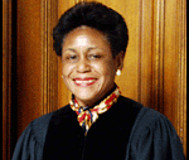2/17/2014
Ohio Appeals Court Overturns Speed Camera TicketSecond highest court in Ohio finds a lack of constitutional due process in the Cleveland photo ticketing program.

Photo enforcement programs have been losing legal support in Missouri over the past several weeks, and now the judicial skepticism has spread to Ohio. On Thursday the state Court of Appeals overturned a speed camera ticket that had been issued by Xerox Corporation on behalf of the city of Cleveland.
Xerox had mailed the ticket to Darrell E. Dawson, claiming his car was traveling 49 MPH in a 35 MPH zone on June 17, 2012. When Dawson appealed, he had his father James G. Dawson, a lawyer, attend the administrative hearing run by a Cleveland employee of the Parking Violations Bureau. James Dawson argued that there were nine specific errors in accusation against his son, but the city employee looked at a sheet of paper that claimed Dawson's car was speeding and imposed a $100 fine.
Dawson appealed to an actual trial court, and the trial court held the hearing officer's findings of fact were sufficient. Dawson appealed again to the Court of Appeals, which agreed that the entire process was constitutionally flawed, citing an appellate decision made in January.
"Because this appeal presents yet another challenge to the constitutionality of a city's automated camera civil traffic enforcement system, we will follow this court's most recent decision in Jodka v. Cleveland," Judge Patricia Ann Blackmon wrote for the three-judge panel. "In Jodka, we found that Cleveland Ordinance 413.031 unconstitutionally usurps the authority of the Cleveland Municipal Court to adjudicate certain traffic infractions. As such, we sustain Dawson's facial challenges to Cleveland Ordinance 413.031 and reverse the trial court's decision."
Article IV, Section 1 of the Ohio Constitution gives the General Assembly the sole and exclusive power of establishing courts and defining their jurisdiction. State law gives municipal courts power to hear cases about the "violation of any ordinance of any municipal corporation within its territory." The statute has a specific exemption for parking violations, which can be heard by a parking violations bureau.
The January 23 Jodka decision (view opinion, 120k PDF) held that the parking ticket exception only applies to citations that have to do with the "stopping, standing or parking of vehicles," which does not apply to speeding citations. The three-judge appellate panel in Jodka found it reasonable that speed camera tickets should not be treated like parking tickets.
"The automated camera system captures this fleeting moment in time," Judge Kenneth A. Rocco wrote for the court. "Because the vehicle operator is unaware of the camera's action, he or she cannot adequately mount a challenge to the accuracy of the device."
Cleveland intends to appeal. A copy of the Dawson ruling is available in a 40k PDF file at the source link below.


